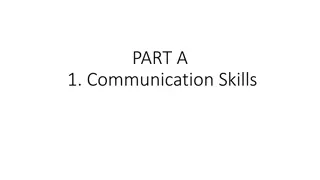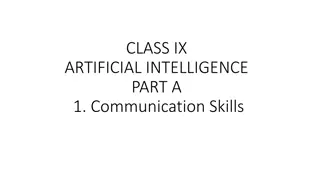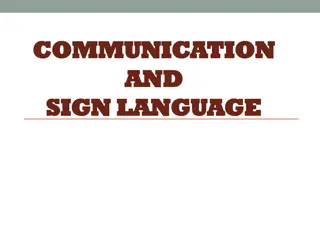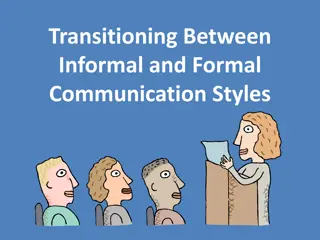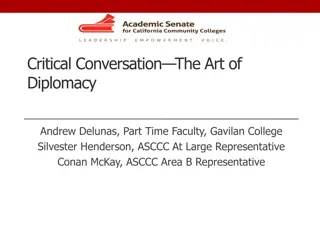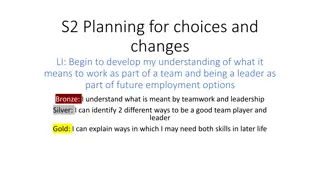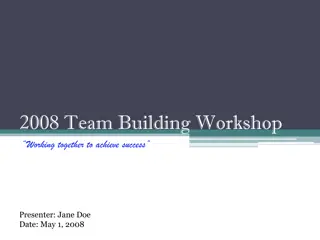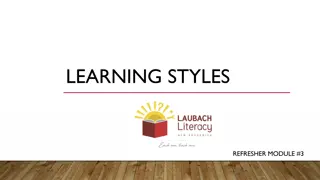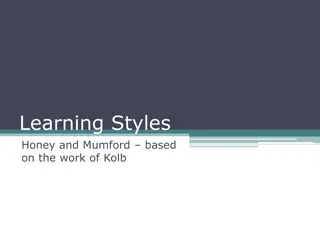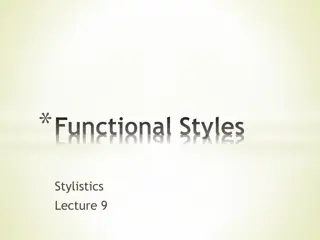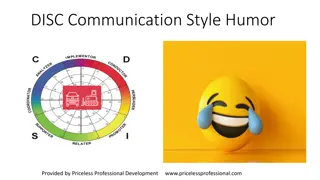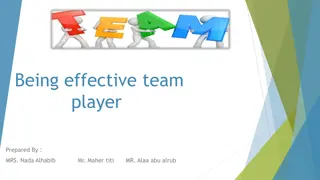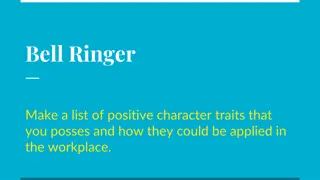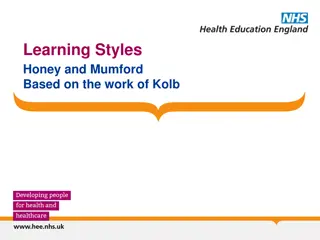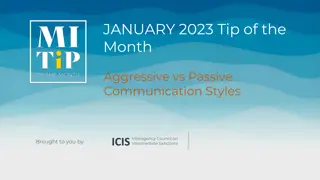Mastering Communication Styles for Effective Teamwork
Enhance your communication skills by identifying and adapting to different styles within your team. This program developed by the University of Wisconsin Oshkosh and Wisconsin Department of Health Services focuses on improving verbal and nonverbal communication to foster successful teamwork. Learn to recognize your communication style and that of others, communicate effectively with team members, and encourage cooperation by understanding and embracing style differences. Activities and learning points provided help in analyzing strengths and limitations of communication styles, ultimately aiming to build a more cohesive and productive team environment.
Download Presentation

Please find below an Image/Link to download the presentation.
The content on the website is provided AS IS for your information and personal use only. It may not be sold, licensed, or shared on other websites without obtaining consent from the author.If you encounter any issues during the download, it is possible that the publisher has removed the file from their server.
You are allowed to download the files provided on this website for personal or commercial use, subject to the condition that they are used lawfully. All files are the property of their respective owners.
The content on the website is provided AS IS for your information and personal use only. It may not be sold, licensed, or shared on other websites without obtaining consent from the author.
E N D
Presentation Transcript
Coaching T.E.A.M. Talk: Communicating with Style Developed by the: University of Wisconsin Oshkosh and Wisconsin Department of Health Services
Learning Points Identify your personal communication style and the style of others Improve communication skills, both verbal and nonverbal Communicate successfully with those you supervise Adapt communication skills for a more successful team
Whos on Your Team? EA M T A supervisor works with several team members: Clients/residents Co-workers Caregivers Family members of clients and residents
Encouraging Cooperation and Teamwork Managers fail due to inability to communicate Understand your strengths and limitations to improve skills Acknowledging style differences allows us to move past conflict
Identifying Communication Styles Identifying Communication Styles Verbal vs. Nonverbal Communication
T.E.A.M. Talk: Communicating with Style It s not what we say but how we say it! Sort the cards by the one that is most like you to the one that is least like you Don t think about it too much--just go with your first impressions T E A M
Activity: Analyze the Styles What strengths does your style bring to the team? How could your style limit the team?
More About T.E.A.M. Talk Avoid Stereotypes Reduce Conflict with Others Improve Communication with: Other styles Clients Family members of residents
Activity: Strengthen Your Team 1. Think about members of your team what styles do you see? 2. What skills and strengths does each style bring to the team? 3. How can you build more teamwork and cooperation by understanding communication style?
Why Understanding Style is Important Focus on the message, not the personality More likely to meet goals Maximize strengths; minimize limitations What are positive outcomes that result from understanding communication style?
Learning Points Review Identify your personal communication style and the style of others Improve communication skills, both verbal and nonverbal Communicate successfully with those you supervise Adapt communication skills for a more successful team
developed by The Wisconsin Caregiver Project UW Oshkosh Center for Community Development, Engagement and Training (CCDET) www.uwosh.edu/ccdet/caregiver


